Connections between meaning and visual representation can be puzzling, just like the multiple negotiations that occur between science and art, between natural phenomena and human attempts to grasp, control and even reinvent them through craft. Puzzles of this kind intrigue Sergey Katran. The art critic Vitaly Patsukov has defined the artist as the inventor of intricate “mechanisms” because of the complex ways in which he develops ideas integral to our modern civilization. A former graduate in chemistry and biology, Katran likes to experiment with Science Art and Bio Art in a variety of media, such as installation, sculpture, performance, and video. On the occasion of his most recent exhibition in the UK, currently on display in Wolfson College at the University of Oxford until October 2022, Caterina Domeneghini spoke with the artist and his interpreter, Irene Kukota, about the war in Ukraine, Katran’s country of origin. Their conversation also focused on his current situation, the stance of artists in times of war, and the ways in which his work has captured the growing tensions between two countries he has lived in and loved over the past twenty years.
Sergey, let’s start from where you are right now and what you are doing at this critical moment in our history.
I am currently in Moscow. For forty days I couldn’t do anything, the whole situation came as an overwhelming blow. What is happening to me is precisely what you have been describing, almost a split identity . . . I mean, that’s exactly how I feel, split. I’m in this slightly schizophrenic situation where my heart and all these worries that I experience are in Ukraine and at the same time I physically remain in Russia. And this situation continues, because for various reasons it has to remain like this.
I decided to resume my artistic work after a while, even though I might not be feeling entirely up to it. Many artists are leaving the country. I decided I am not going to leave for now. Instead, I am planning to make an artistic project at an independent art platform, dedicated to the current situation. Rather than fearing it, I want to still be able to express what I feel, though I cannot tell you much more for now.
You said that many Russian artists are leaving the country. Many artists, too, have withdrawn their participation from important international events, like the Venice Biennale. Does art still have reasons to exist in times like this?
You know, when the whole thing started, I was talking to some good artists, quite well known, and many of them were expressing different sentiments, emotions, thoughts. Some of them were saying, “What have we done wrong? How could we not prevent this from happening?” A couple of them were saying they didn’t want to be artists anymore.
It’s the usual thing, as clichéd as it may sound: art works with rather fine substances or fine energies, if you like this expression. It works with a certain germination of thought. Do you know the phrase “When the cannons are firing, the Muses are silent?” Art seems irrelevant in situations like this. Artists feel that their voices are not going to be heard, because there are other, more pressing issues of survival on people’s minds. Perhaps art should be using other media in times like these. It might need to be more performative, more poster-like, as it’s closer to action and speaks more directly about the current situation. READ MORE…

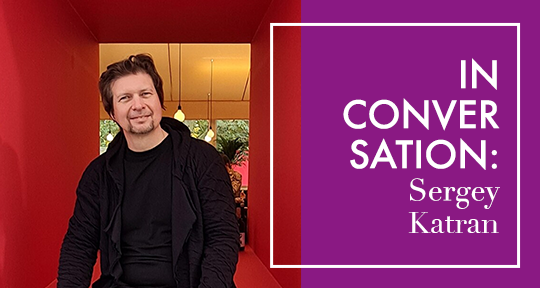
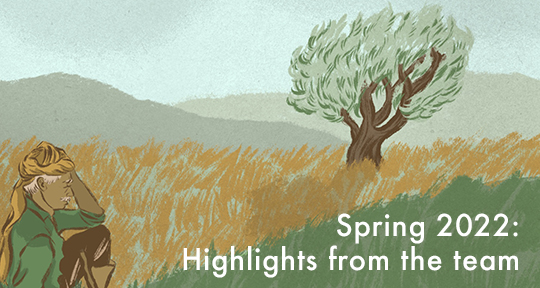



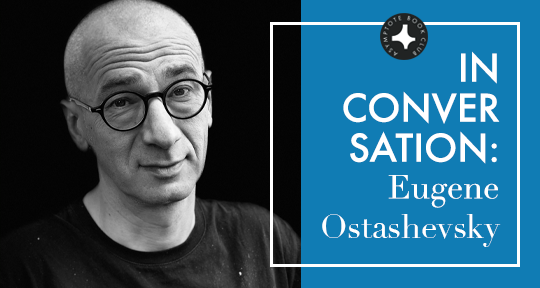
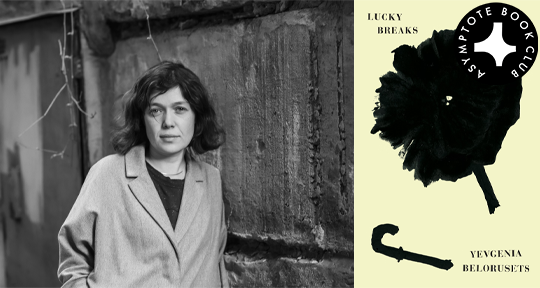
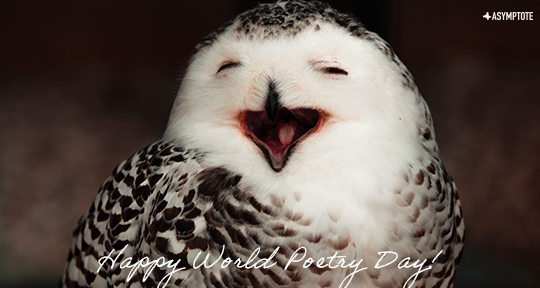


We Stand With Ukraine: “The Ghost of Kyiv” by B. R. Dionysius
Through his phone’s / cracked canopy he plays you a black streak / over Kyiv
In this week’s edition of literary works written in support and solidarity with the citizens of Ukraine, we are proud to present a poem by B. R. Dionysius. “The Ghost of Kyiv” movingly comments on the distancing voyeurism of watching tragedy unfold from afar, and of wide-ranging human affairs condensed into byte-sized consumption. As we continue to navigate the ever-shifting boundaries between the virtual and the real, Dionysius’ poem works between man and machine, its precise lines edging out the bodies caught within them.
The Ghost of Kyiv
Your son shows you a Tik Tok clip;
You both play Russian computer games.
Simulators that glorify World War Two/
mid-century armour & the cold war era
where each new development increased
penetration; rounds that defeated steel’s
stubborn thickness. You watch your son
take to the skies over maps of Ukraine.
1941. Get shot down a lot. The next best
thing to flying solo. Through his phone’s
cracked canopy he plays you a black streak
over Kyiv; a medieval, barbed arrowhead
punching through the sky’s grey cuirass. For
fifty years the fulcrum has been idle; three up
-grades, engines, radar, missiles, but never seen
combat. Seventies bones good enough to mix
it over the capital with its modern successors,
flankers & frogfeet; a retro jet where the ghost
got good purchase from his re-engineered multi-
role fighter. The first ace in a day in fifty years.
Not since Alam’s F-86 sabre rattled in the Indo-
Pakistani war has the aerial world revelled in six
kills in one day. Your son doesn’t bother to fact
check the video, sold on social media’s bravado;
a pilot’s last stand. He tells you the ghost was shot
down, but ejected. His short clip trimmed to fit.
READ MORE…
Contributor:- B. R. Dionysius
; Place: - Ukraine
; Writer: - B. R. Dionysius
; Tags: - machinery
, - Poetry
, - social commentary
, - social media
, - voyeurism
, - War